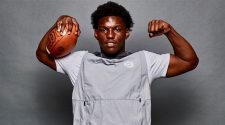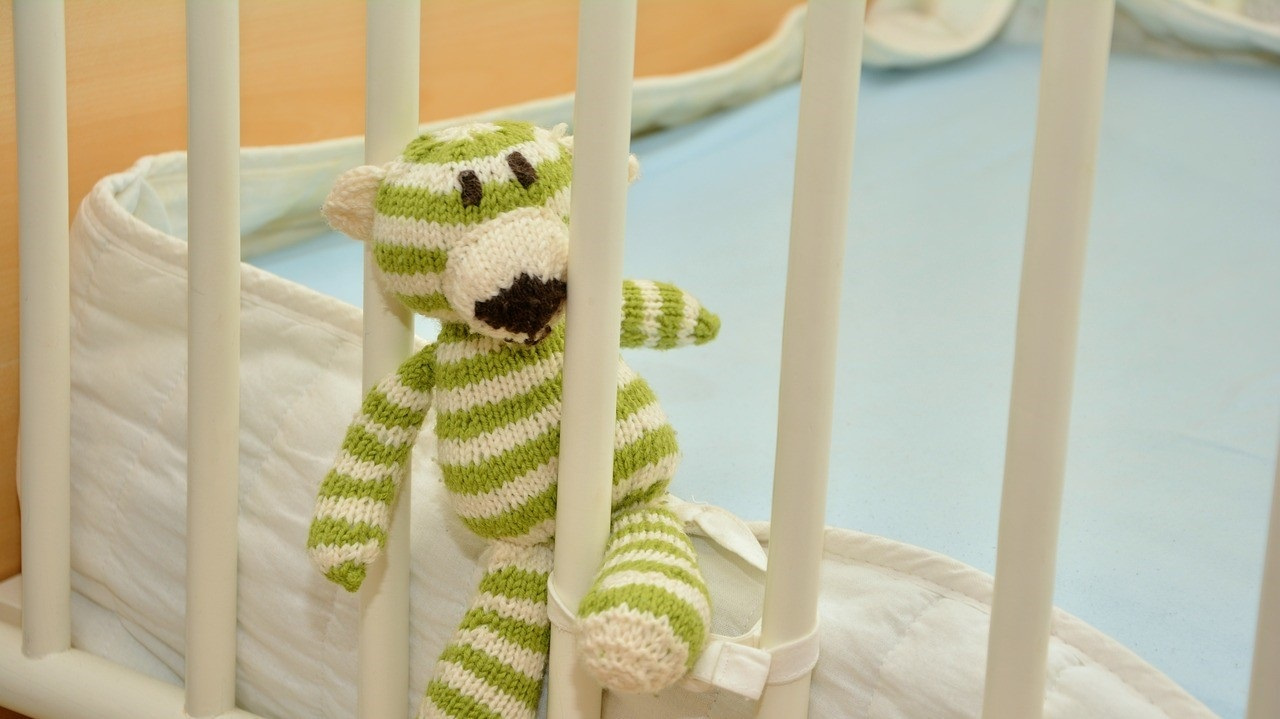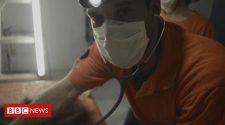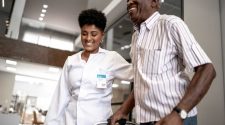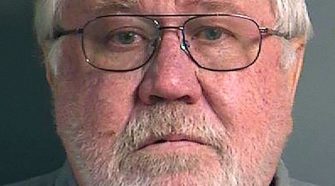WICHITA, Kan. (KSNW) — The path to starting a family is not as straightforward as it sounds: a reported 1 in 8 women struggle with infertility.
Those who deal with infertility often face extra challenges, awkward conversations and isolating feelings. Many say they do not share even with family and friends.
Infertility can have many different outcomes. We are sharing several Kansas families’ struggles during Infertility Awareness Week. Catch this story on KSN News at 5 on Monday.
Cheryl Childers – Wichita
Doctors surgically removed an ovarian cyst from Cheryl Childers when she was 15 years old. In passing, her pediatrician mentioned she could have trouble getting pregnant someday. But at age 15, Childers nor her parents thought much of the comment.
Childers continued to struggle with cyst issues, requiring another surgery years later.
After she and her husband married, he was in a car accident resulting in spinal cord injuries.
“Again, it was, ‘You might have a little bit of a hard time, but you should be fine in getting pregnant, don’t worry about it,’” Childers says of doctors.
Years went by and Childers still could not get pregnant. She turned to dietary supplements and vitamins, as many women who experience infertility report doing. By age 34, Childers fielded comments from family and friends about how the clock was ticking. At age 36, Childers went to see a fertility doctor.
“At the time, it really bothered me,” Childers said. “But now, I’m so appreciative that he was very honest and said, ‘Honestly, with your medical history, and the combination of the two of you, we could do IVF, we could do all these things, but more than likely, it’s not going to happen in years. We’re wasting your money.’”
The heartbreaking reality hit Childers hard after years of being told she would be okay. She and her husband explored different avenues of starting a family which ultimately ended up in two failed adoptions.
Childers now knows her triggers and what to avoid, including days like April Fools’ Day or going out on Mother’s Day. She recalls a particularly hurtful experience at a Wichita restaurant on Mother’s Day years ago.
“They were doing that whole thing of handing out the flowers to moms on Mother’s Day and they asked, ‘Are you a mom?’ And I said no. And they said, ‘Okay,’ and then they took the flower away. And, you know… I understand, but they had no idea what that did to me emotionally,” she said.
In 2019, Childers got pregnant in what she calls a fluke. The pregnancy resulted in a late second-trimester loss.
“At this point, we have just determined that this isn’t our path, and we are coming to terms with that because after you’ve had a couple of miscarriages and especially a late second-trimester miscarriage, the emotional side of it. We’re adjusting some of our life plans,” Childers said.
She finds joy in being an aunt and an auntie to friends’ children. Still, she wishes more aspects of infertility were openly discussed, including the struggles men face and how difficult making adult friends can be without the aspect of sharing a child’s sports or interests.
Jason and Shelbie Toevs – Whitewater
Jason and Shelbie Toevs married young and enjoyed worldwide travels while in pregnancy prevention mode. The pair did ministry work in Australia and decided since all their young friends were having babies, they would quit preventing it for themselves. Years passed and they did not become pregnant.
In 2014, Shelbie miscarried twins while in Australia again. Family issues filled the year, and the couple says they put pregnancy on the back burner for a while.
In 2015, Shelbie went the natural route, speaking to a midwife and going on supplements. In 2016, she did Clomid treatments. In 2017, they did other fertility treatments to no avail.
Jason got checked out. They say a urologist dismissed the issue and said surgery was the only option. Frustrated, Shelbie began to look into their insurance options and discovered embryo adoption.
Embryo adoption involves the donating of a couple’s embryo to another person struggling to conceive. Though Shelbie would carry and give birth to a baby, it would not share her nor Jason’s genetics.
“At that point, he was still kind of like, ‘Well, it’s kind of weird, that’s like someone else’s kid that you’re carrying,’” Shelbie said of Jason’s reaction.
Embryo adoption can take different routes, including embryo donation through a clinic where all transactions are done anonymously. The receiving couple does not receive a profile on the genetics of the child they are to carry. Another option is through a national registry, where both parties handle their own case.
Within the world of embryo adoption, the embryos are treated as property. In simple terms, Shelbie likens the embryo donation adoption contract to buying a car. Once papers are signed, the car, or embryos, belong to someone else.
Within two weeks, someone contacted them with interest. After some back and forth, it became clear the person was searching for a surrogate-type relationship rather than letting Shelbie and Jason exclusively parent.
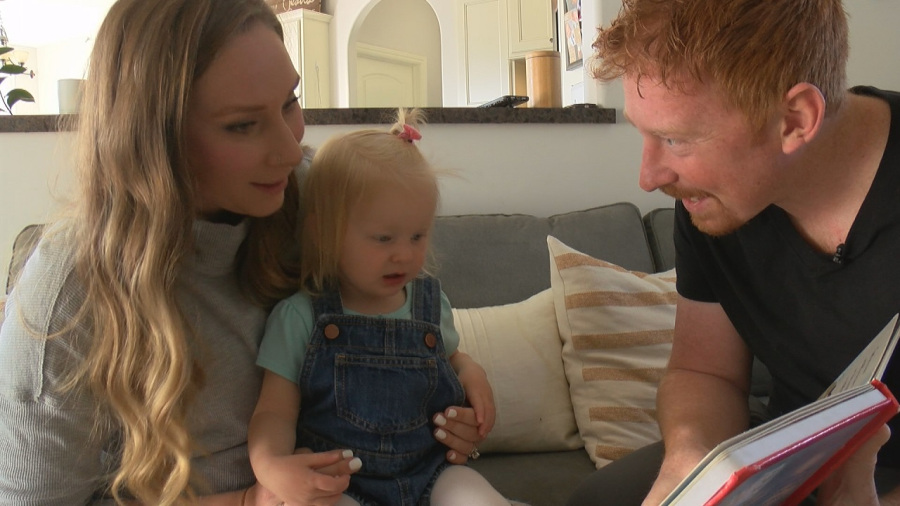
The couple looked elsewhere and eventually were matched with a couple donating six to twelve embryos. After a mock transfer, the donor couple’s embryos were transferred to Shelbie in October 2018, and she gave birth to a daughter, Shiloh, in June 2019.
“How do we raise Shiloh to know how much we love her and our story with her but also, you know the difference between her biological parents and her genetic parents?” Jason said.
Shelbie and Jason have a relationship with Shiloh’s genetic parents and planned to introduce her to them last year, but the COVID pandemic got in the way.
They planned to continue giving birth to Shiloh’s genetic siblings through the embryos they received, but Shelbie recently discovered she was pregnant despite not doing an embryo transfer yet.
They now navigate feelings of having both a child through embryo adoption and a genetic child, not wanting Shiloh to feel disadvantaged. They even feel guilt because of the bonds they built over seven years with others experiencing infertility.
“How do we still share what God’s done in our life without making it feel like we’re insensitive to having gone through the trenches before having been in the muck and the pain and hardship?” Jason said.
Amy Curiel – Newton
Amy Curiel began blogging about her journey with infertility as an outlet when the subject was too taboo to discuss.
“Very much feeling like I wasn’t made right…you’re made a woman, and you have kids,” she said of perceived expectations.
She and her husband went through years of treatment, hormones and IUI procedures. They saved up the money and took out a loan for their first IVF treatment.
While Amy considers her journey with infertility to be part of God’s plan, she and her husband used to be Catholic. They faced some uncomfortable conversations with priests who were not accepting some alternative ways to form a family.
On the Curiels’ third IVF attempt, they used Amy’s last two frozen eggs from almost ten years prior. Amy got sick on Mother’s Day and found out the eggs did not take.
Months later, doctors discovered a pseudotumor in her brain that required surgery.

“I think the deepest part of knowing God had it the whole time, I would have died if I would have went into labor, and that’s tough. You wanted something this whole time, and it was to have a baby. And yet, I was devastated with that last one. Knowing the whole time, I wouldn’t have been here today if I would have ever got pregnant,” Amy said through tears.
With the last failure, foster care began tugging at Amy’s heart. She and her husband did respite care for a foster facility, giving foster parents a break. They felt called to help older kids.
In 2018, a toddler walked into their home who didn’t speak. The goal was to stay with the Curiels until he could be reintegrated with his family. His case changed, and Amy and her husband ended up adopting him.
“He was so much younger than what we thought we were going to have. And oh my goodness, I couldn’t imagine life without him. Like he’s such a ray of sunshine,” Amy said.
Now the family of three continues foster work, including a baby they’ve had in their home since her birth. Cheeto-covered fingerprints on her windows remind her of their 13-year journey with infertility.
A quote she found years ago sticks out to her: “What’s your end goal? Is it to be a mom or to be pregnant?”
While she used to feel that infertility defined her, Amy now is a resource for other women going through infertility.
“There’s no right or wrong way to forming your family,” Amy said.
Resources
Other Perspectives
I was married to my first wife for ten years. We discovered about halfway through the marriage that she wasn’t able to have children, or at least that the odds would be very slim. A variety of options were offered by doctors to try to remedy the situation, and she and I discussed how to proceed in great depth. She believed that if she got pregnant, it would prove that it was meant to be, but she didn’t want to pursue artificial means. And if she didn’t get pregnant, that was simply God’s will. We had seven nieces and nephews between us, and the lack of our own children allowed us to build strong bonds as aunt and uncle. She began to volunteer as a big sister. And I regularly volunteered in the nursery at church. Without children of our own, it opened up a lot of doors to serve and be a resource to other families, and to children who didn’t have a stable family situation at home. The world needs such individuals and couples with a heart for kids, and that was the route we took. I don’t regret it to this day. -Eric Litwiller, Wichita
We went through five difficult years of infertility and two pregnancy losses before deciding on adoption. We had open adoptions in the 90s when that wasn’t very popular. We are still in contact with the girls’ birth families and they came to each of their weddings. We used to have family picnics every two years for all extended birth families. – Diane Hershberger, Newton



